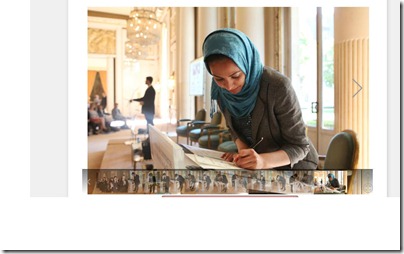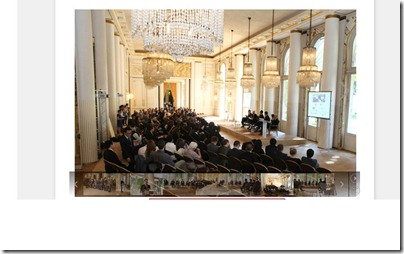
“We are looking forward to meetings and consultations with the Indian government and we are not getting them. This is the irony of the way the Indian establishment looks at these issues. It is discouraging to the country’s youth,” quipped Bansal, who was selected as the Indian head of state in this year’s delegation after a highly competitive three-pronged selection process.
He noted: “If at all India has to emerge very brightly at the international stage, the establishment needs to project its youth in a very vibrant manner. Most achievements of young Indian people are a result of their personal efforts. Nowhere are they supported by the government.”
He told Legally India that the delegation, which besides Kshitij includes a Delhi University and a BITS Pilani post-graduate student, and a PhD scholar from the university of France, was due to meet the Mexican and US ambassadors in Delhi on 15 May.
Before flying out for the 3 to 9 June 2012 summit, they will interact with joint secretary for the ministry of finance and the G20 India chair Dr Alok Sheel, deputy chairman of the planning commission Montek Singh Ahluwalia, and the prime minister.
Bansal and the team have been in the process of finalising the agenda over the past month, and while meetings with Indian government officials will ensure they do not contradict the government’s stand on policy matters at the conference, Bansal’s preparation for the event dates back several months.
The selection
Bansal defied tradition when he was selected as the rare undergraduate student of law to lead the delegation, which traditionally consists of students from the IITs and IIMs.
To be selected from a pool of close to 200 applicants and 25 final interviewees - mostly post-graduates and PhD scholars - for the position of head of state, Bansal passed a three-stage, six-month-long filtering process including the submission of a concept paper, followed by the filing of a vision statement, and finally appearing for a personal interview, he said.
For the first stage, he chose Africa as an interest area, having worked on this since his second year of law school. The paper focused on overhauling global governance systems with Africa at the centre stage: “What Asia was to the west in the nineteenth and the twentieth century, Africa would be to Asia in the twenty first,” he argues.
The second level required a vision statement, in which he proposed a workable model to spur international economic growth, by reorienting global economic governance and bringing in rural investment and consumer spending through the rural parts of the world.
Candidates who passed to the interview stage, were then grilled by Centre for Policy Research fellows and professors.
Preparation
“For the past one month we have been literally fighting,” said Bansal, adding: “I wanted an agenda where we can take up the issues of Iran and North Korea, as well as Iraq and Afghanistan. While Iran and North Korea were agreeable to the US, it was opposed to the latter.”

He emphasised how he’d like the unenthusiastic and non-responsive Indian government to take a page out of the book of the French, Russian, Chinese and Australian delegations, which “have been literally sitting in their presidents’ offices working on the agenda for the past month”.
The delegation is preparing the obligatory position paper under the guidance of last year’s delegation comprising three IIT students and one PhD student from the Tata Institute of Social Sciences.
Expectations
He said that the best result for the delegation would be if the argument it will spend five days negotiating at the conference, will be included in the final communiqué by the government at the main summit.
“Last year, when the communiqué from the youth summit was submitted to the main G20 summit, it was a great achievement that the Mexican delegation actually adopted one issue from the communiqué into its own agenda,” reports an enthused Bansal. “This fulfils the objective of involving the youth around the world in global governance.”
The Indian delegation also hopes to meet the US Secretary of State after the youth summit on 10 June.
Life after the summit
Bansal plans to enter international law with a focus on research and scholarship in international law and policy making.
“Students really don’t look forward to international law as a career. The case might be different at NLS and Nalsar where there are different orientations and different perspectives, but at all the rest, [students] have not been exposed to international law as a major career,” he noted.
He added that international law offers great opportunities in a dynamic job environment with a lot of scope for innovation and advocacy, as well as due to India’s upcoming position as a policy centre.
“In my own country I wish to start off a research organization or an Indian think tank,” he speculates about his long-term plans. “Presently, think tanks in the country focus on macro level issues, and I aim to meet the dearth in treatment of micro level issues.”
threads most popular
thread most upvoted
comment newest
first oldest
first
threads most popular
thread most upvoted
comment newest
first oldest
first